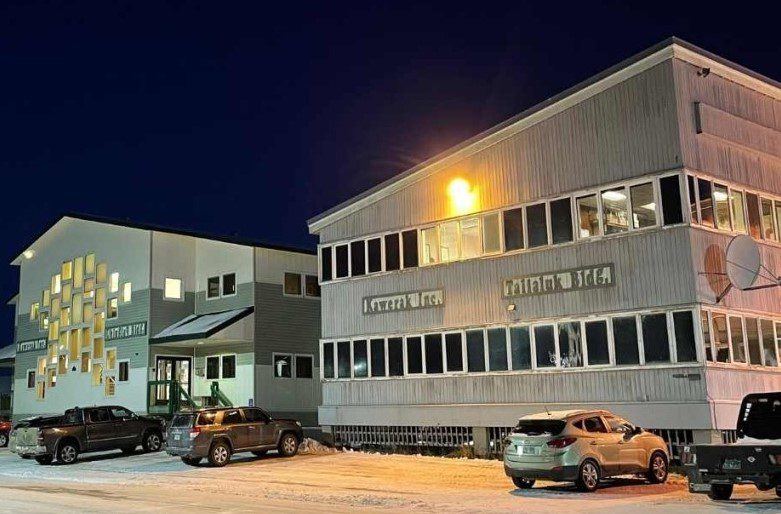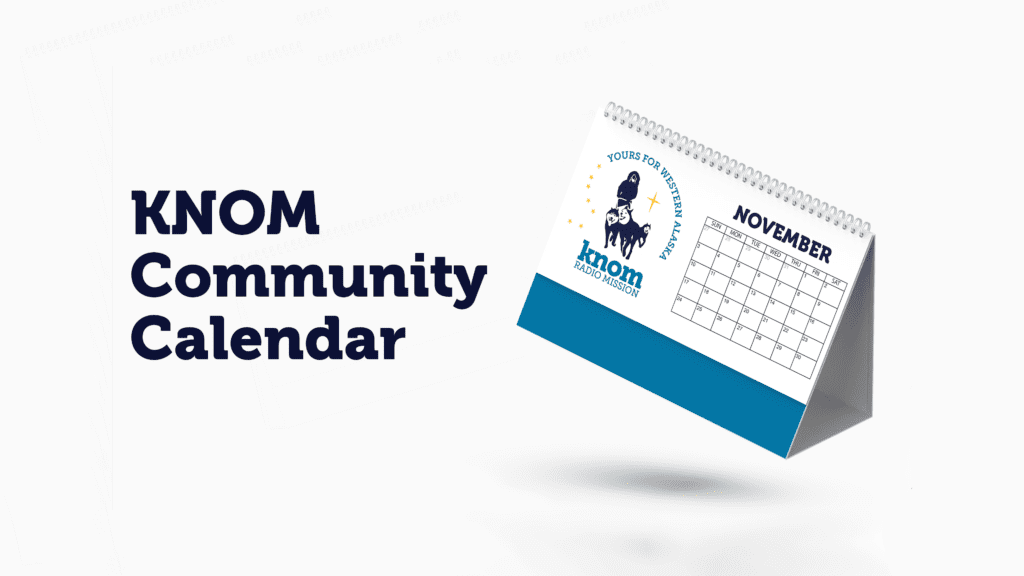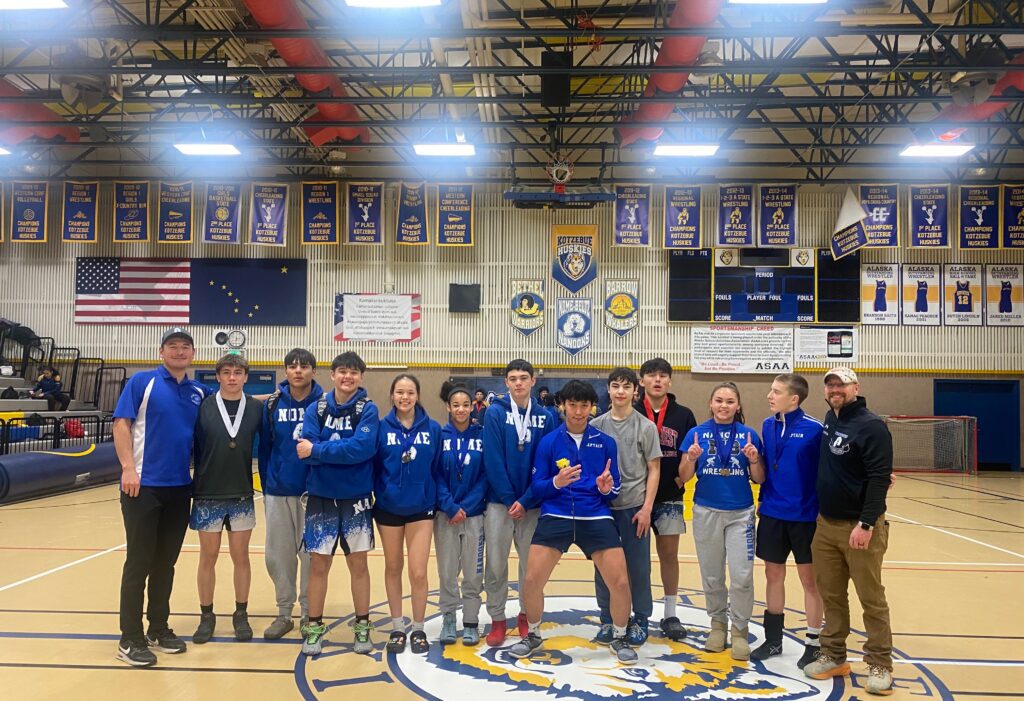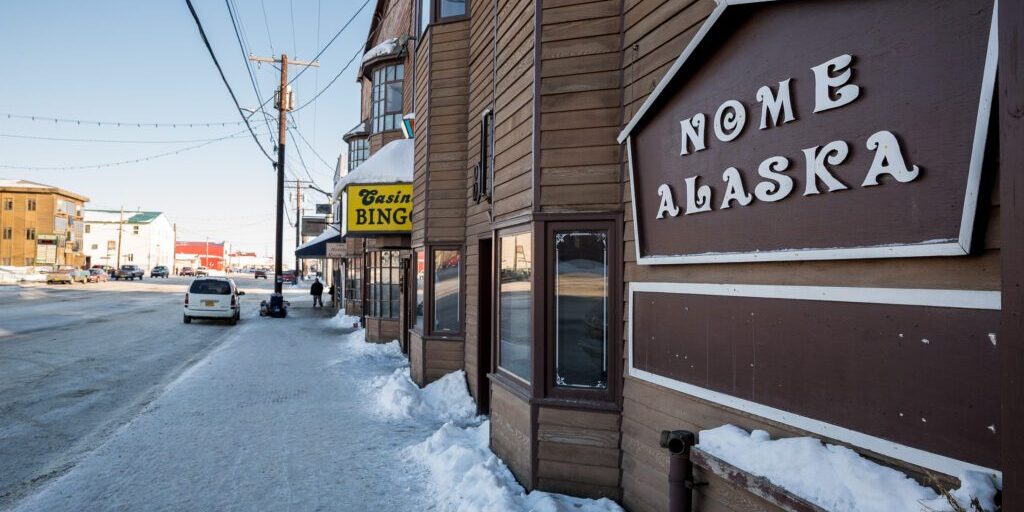For months, many Nome citizens have advocated at City Council for a public safety commission. On Monday night, the community had the chance to discuss a written proposal for the potential public-group.
The crowd gathered in Nome Eskimo Community’s Trigg Tribal Hall contained many faces that are often seen in City Hall. That included concerned citizens, city council members, the chief of Police, and other city personnel. Facing the group of about 25 people was a face not often seen in Nome: Brooks Chandler, the city attorney.
“As the city attorney my job is to represent the collective interests of all members of the community of Nome. So, part of doing that job is for me to hear directly from you. Although at the end, the way the Democratic system works, the ultimate decision maker is your elected representatives, the City Council.”
In particular, citizens have been concerned about a perceived lack of police oversight, especially with cases regarding sexual assault and domestic violence. Using the example of already existing city advising commissions like the Planning and Port Commission, along with the Nome Code of Ordinances, the attorney laid out a drafted ordinance for the creation of a Public Safety Commission. For Chandler, this was about getting something on paper to facilitate conversation:
“What is in the draft form is an advisory body that gets direct information from the police department and that prepares recommendations to the city council, is required to submit an annual report, is required to be involved in the process in which a police chief is selected in the future and is required to have regular meetings.”
Then the floor was open for public criticism and discussion. Lisa Ellana is a resident of Nome and came forward as an advocate for victims of sexual assault.
“The majority of the people that were impacted by the way things were previously were Alaska Native… it is my opinion, that there should be tribal membership, people that are Alaska native, Alaska Native women and leaders from this community, concerned citizens who are part of the community that are most severely impacted by the past handling of things on this commission”.
Residents noted that there are other organizations in Nome that seek to have boards that represent the diversity of the community, such as the Nome Community Center.
Like other commissions, members of this proposed body would be appointed by the mayor and subject to confirmation by the City Council. The city manager and chief of police would be ex-officio members, meaning that whoever holds that office would automatically be a part of the commission.
The proposed ordinance also had a list of requirements for service including not having been employed by NPD within the past two years, not being convicted of a felony, misdemeanors of sexual assault or domestic violence, or crimes “involving acts of moral turpitude”. But Nicole Frank, an attorney and Nome resident, mentioned that those cover a broad range of convictions that do not expire. She noted that in the State of Alaska, those requirements could disproportionately affect some socio-economic populations.
Under the Open Meetings Act, the meetings will be open to the public. Frank drew the crowd’s attention to the legal problems this could present.
“How is that impacted when juveniles are involved? For instance, if a police officer is involved of misconduct involving someone who is underage… an officer can request that that information becomes public?”
City attorney Brooks Chandler acknowledged the committee would be what he calls a “balancing act”.
“Creating a commission expands potential liability and that’s just something people have to weigh. The commission could have procedures and fail to follow them. The commission could inadvertently trample somebody’s rights as a victim, as an employee, so there’s an increased risk of liability. The flipside of that is that the city buys insurance.”
Present in the audience was Triada Stampas, a policy director for the American Civil Liberties Union (ACLU). She and ACLU Legal Director Stephen Koteff offered to make themselves available as a resource for Nome-ites to learn more about other citizen oversight committees that could serve as a potential reference.
Though Monday night’s discussion did yield minor changes and edits to the original drafted proposal, the gathered community members decided that the best way to move forward is to bring the proposal to the next city council meeting. It will be required to go through two readings where the city council can discuss, make changes, and hear public comments. Citizens who wish to get in contact with the ACLU can contact their office in Anchorage at 907-263-2004.
The next City Council meeting will be this Monday, February 25th.
Image at top: Front Street. Photo: David Dodman, KNOM.




